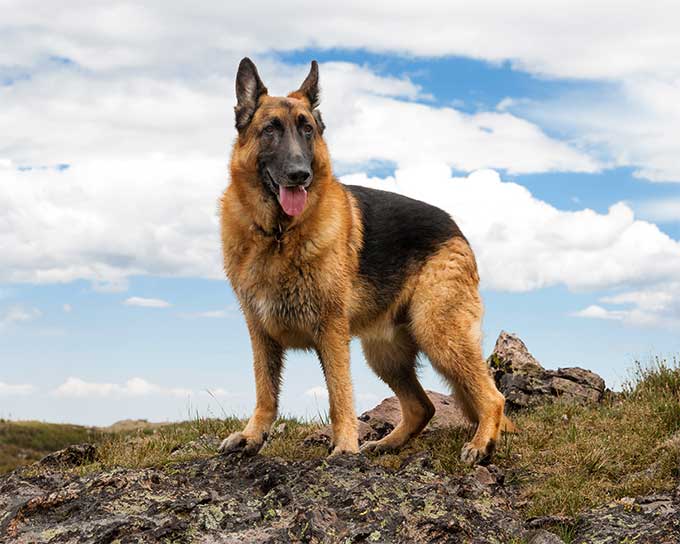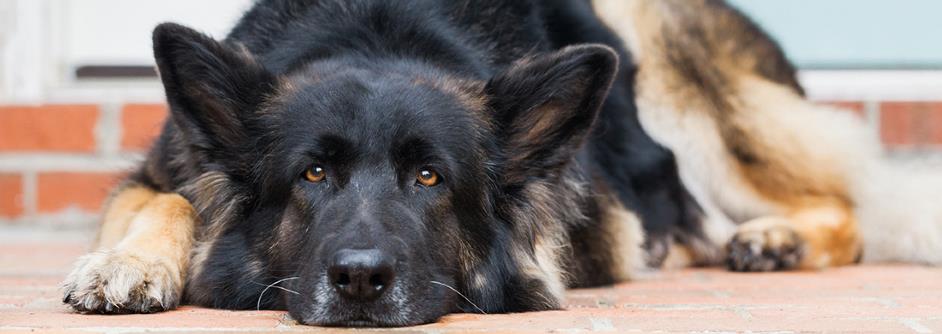A German Shepherd is a big dog with an unique head shape-which makes it especially important to choose a properly fitted collar. Your dog’s collar is where you attach vital information: ID tag, phone contacts, pertinent health info, etc. That’s why fit will be so crucial for comfort and to ensure that the collar stays on, whether he’s running through the woods or crawling into tight spaces.
To measure for fit, place a tape around your dog’s neck halfway between the back of his head and top of his shoulders. Then add at least one inch for correct sizing. When the collar is suitted properly, you ought to be able to slip two fingers between his neck and collar.
Keep in mind that German Shepherds have an unique head shape, with a thick neck (generally 18″ to 24″) in relation to skull size. That means shepherds can slip out of their collars if they are not fitted carefully. Also, choose a collar 1″ to 1.5″ wide to prevent a strong dog from slipping free.
Your German Shepherd is no Chihuahua. He’s powerful with a strong pulling reflex and, even as a puppy, he can be a challenge to control. But when properly trained, your breed is a model of predictable behavior. Here are some frequently used training collars:

- Choke Collar: Commonly used for temporary correction, it tightens around the dog’s neck when the lead is pulled, getting his attention, then slipping loose. A choke collar can be dangerous if left on an unsupervised dog. Prong or pinch collars should only e used under the guidance of a trainer.
- Head Collar: Also called “gentle leaders” or “halters,” these attach around the head and behind the ears. Currently popular, they allow gentle correction by pulling at your dog’s weakest point, the muzzle, while enableing him to pant, drink, and bark.
- Harness: Consider this option if your dog has a respiratory or throat problem that makes wearing a conventional collar uncomfortable. Just remember that harnesses were designed to give working dogs more pulling power. That means you’ll have less control when walking your strong German Shepherd. Remember, keeping your German Shepherd safe and comfortable is the first priority when selecting the perfect collar.
For your German Shepherd puppy, consider having both a conventional and training collar on hand. And always speak to a qualified dog trainer if there’s any question about the proper use of a corrective collar or training device. You can even
By Dog Care Tip

